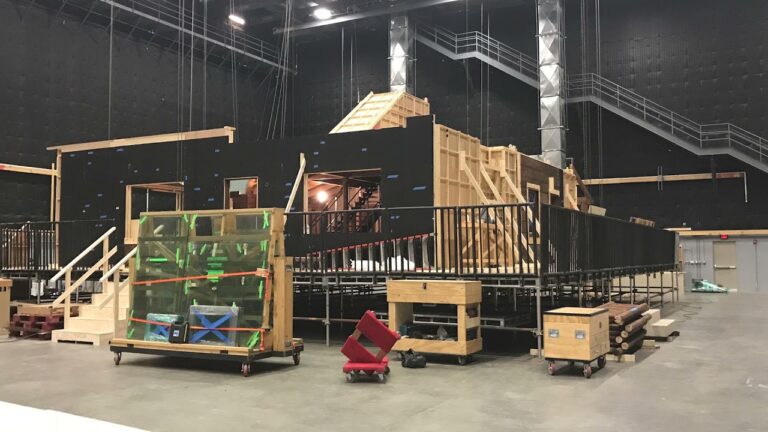Event Planner Job: Roles & Salary
Event Planner Job Description
An Event Planner is a professional responsible for organizing and coordinating various events, such as weddings, conferences, corporate parties, and fundraisers. They work closely with clients to understand their requirements and preferences, and then plan and execute the event accordingly. The Event Planner Job Description includes tasks such as selecting and booking venues, managing budgets, arranging transportation and accommodations, coordinating with vendors and suppliers, creating event timelines, and overseeing the overall logistics.
Event Planners also play a crucial role in event marketing and promotion. They collaborate with marketing teams to develop advertising strategies, design invitations, and promote events on social media platforms and other channels. Additionally, Event Planners need to have excellent communication and negotiation skills to liaise with clients, vendors, and attendees effectively.
Event Planner Salary
The Event Planner Salary may vary depending on factors such as experience, location, and the size and complexity of events managed. According to the Bureau of Labor Statistics, the median annual wage for event planners was $50,600 as of May 2020. However, experienced and highly skilled Event Planners can earn significantly higher salaries.
In addition to the base salary, Event Planners may also receive bonuses or commissions based on the success of the events they organize. Furthermore, those who work independently or run their own event planning businesses have the potential to earn higher incomes.
Overall, the demand for Event Planners is expected to grow in the coming years, offering ample opportunities for professionals in this field to showcase their skills and earn a rewarding salary.

Event Planner Job Description Template
Event Planner Job Description
An event planner is a professional responsible for organizing and coordinating various types of events, such as conferences, weddings, parties, and corporate meetings. They work closely with clients to understand their vision and requirements for the event and then develop a detailed plan to bring that vision to life.
One of the important roles of an event planner is to research and select suitable venues for the event. They need to consider factors such as location, capacity, and amenities to ensure the chosen venue meets the client’s needs. They also negotiate contracts with vendors, such as caterers, decorators, and audio-visual suppliers, to secure the necessary services and equipment for the event.
Time management is another crucial skill for event planners. They need to create detailed timelines and schedules to ensure that all aspects of the event are executed smoothly and within the given timeframe. This includes coordinating with different vendors, managing logistics, and overseeing the setup and breakdown of the event.
Furthermore, event planners must possess excellent communication skills to effectively collaborate with clients, vendors, and event staff. They must be able to clearly convey their ideas, negotiate contracts, and coordinate tasks with different team members. Strong interpersonal skills are also necessary to handle any conflicts or unexpected challenges that may arise during the event planning process.
In conclusion, an event planner plays a vital role in creating memorable and successful events. They must be detail-oriented, organized, and possess strong communication skills. With their expertise, they ensure that every aspect of an event is meticulously planned and executed, ultimately providing a seamless experience for clients and attendees.
Event Planner Responsibilities
Event Planner Requirements
- A strong organizational and planning skills
- Excellent communication and interpersonal skills
- Attention to detail
- Creativity and ability to think outside the box
- Ability to work well under pressure and meet deadlines
- Flexibility and adaptability
- Knowledge of event planning software and tools
- Budgeting and financial management skills
- Ability to negotiate and manage vendor relationships
- Strong problem-solving and decision-making skills
- Ability to multitask and handle multiple projects simultaneously
- Knowledge of current industry trends and best practices
- Ability to work well in a team
- Customer service orientation
- Physical stamina and ability to work long hours
How Much Does A Event Planner Make?
Event Planner Salary
| Position | Salary |
|---|---|
| Entry-level Event Planner | $35,000 – $45,000 |
| Mid-level Event Planner | $45,000 – $65,000 |
| Senior Event Planner | $65,000 – $85,000 |
| Event Planning Manager | $85,000 – $100,000 |
An event planner is responsible for organizing and coordinating various events such as conferences, weddings, parties, and corporate events. The salary of an event planner can vary depending on factors such as experience, location, and the size and complexity of events they manage.
Entry-level event planners can expect to earn an annual salary ranging from $35,000 to $45,000. As they gain more experience and expertise, mid-level event planners can earn between $45,000 and $65,000 per year. Senior event planners, who have several years of experience and manage larger events, can earn salaries ranging from $65,000 to $85,000.
Those who reach the position of event planning manager can earn salaries between $85,000 and $100,000 per year. This role involves overseeing a team of event planners, managing budgets, negotiating contracts, and ensuring the successful execution of events.
It’s important to note that these salary ranges are estimates and can vary based on factors such as the industry, company size, and individual negotiation skills. Event planning can be a rewarding career path for those with strong organizational and communication skills, as well as a passion for creating memorable experiences.
Event Planner Salaries by Country
Top Paying Countries for Event Planner
| Country | Average Salary (USD) |
|---|---|
| Switzerland | 70,000 |
| United States | 60,000 |
| Australia | 55,000 |
| United Arab Emirates | 50,000 |
| Canada | 45,000 |
An event planner’s salary can vary depending on the country they work in. The table above shows the top paying countries for event planners and their average salaries in USD. Switzerland ranks as the highest paying country for event planners, with an average salary of $70,000. The United States follows closely behind with an average salary of $60,000. Australia, United Arab Emirates, and Canada also offer competitive salaries for event planners. It’s important to note that these figures are average salaries and can vary based on experience, qualifications, and the specific industry in which the event planner operates.
A video on the topic Event Planner
Video Source : Miss Event Planner
Interview Questions for Event Planner
1. What qualifications and experience do you have as an event planner?
I have a Bachelor’s degree in Event Management and have been working as an event planner for the past five years. During this time, I have successfully organized and executed a wide range of events, including corporate conferences, weddings, and charity fundraisers.
2. How do you handle tight budgets when planning an event?
When working with a tight budget, I prioritize expenses based on the client’s goals and the most important aspects of the event. I negotiate with vendors to get the best possible rates, explore cost-effective alternatives, and find creative solutions to cut down expenses without compromising the quality of the event.
3. How do you manage multiple tasks and deadlines simultaneously?
I am highly organized and skilled in time management. I create detailed timelines and task lists for each event, ensuring that all deadlines are met. I also delegate tasks to a team of assistants and regularly communicate with them to ensure everything is progressing smoothly.
4. How do you handle unexpected challenges or problems during an event?
Flexibility is key in event planning. I always have backup plans in place for potential issues that may arise. When faced with unexpected challenges, I remain calm, assess the situation, and quickly find solutions to minimize any negative impact on the event. I am also skilled in communicating effectively with clients and vendors to address and resolve any problems efficiently.
5. How do you ensure effective communication with clients throughout the planning process?
I believe in maintaining open and transparent communication with clients. I schedule regular meetings to discuss their vision, goals, and preferences for the event. I provide detailed progress reports, update them on any changes or developments, and promptly address any questions or concerns they may have. I also encourage client feedback to ensure their satisfaction.
6. How do you stay updated on the latest event planning trends and industry developments?
I am passionate about my profession and constantly strive to stay updated on the latest trends and industry developments. I attend industry conferences, workshops, and networking events, read industry publications, and follow influential event planners and organizations on social media. This allows me to incorporate innovative ideas and concepts into my event planning strategies.
7. How do you handle vendor selection and negotiation?
Vendor selection is a crucial aspect of event planning. I research and identify potential vendors based on their reputation, expertise, and past work. I then reach out to them for proposals, compare their offerings, and negotiate the best possible terms and rates. I always ensure that vendors align with the client’s expectations and the event’s requirements.
8. How do you manage event logistics such as venue selection, catering, and transportation?
I have extensive experience in managing event logistics. I conduct thorough research to identify suitable venues, considering factors such as location, capacity, and amenities. I collaborate with caterers to create customized menus that meet the client’s preferences and dietary requirements. I also coordinate transportation arrangements for guests and ensure smooth logistics throughout the event.
9. How do you measure the success of an event?
I measure the success of an event based on various factors, including client satisfaction, attendee feedback, and achieving the event’s objectives. I conduct post-event surveys, analyze attendee engagement, and review event metrics, such as ticket sales or fundraising results. This helps me evaluate the event’s impact and identify areas for improvement in future events.
10. How do you handle the stress and pressure associated with event planning?
Event planning can be demanding, but I have developed effective stress management techniques over the years. I prioritize self-care, such as exercise and meditation, to maintain a healthy mindset. I also maintain open communication with my team, delegate tasks, and seek support when needed. Proper planning and organization help me stay on top of tasks, reducing stress levels.






